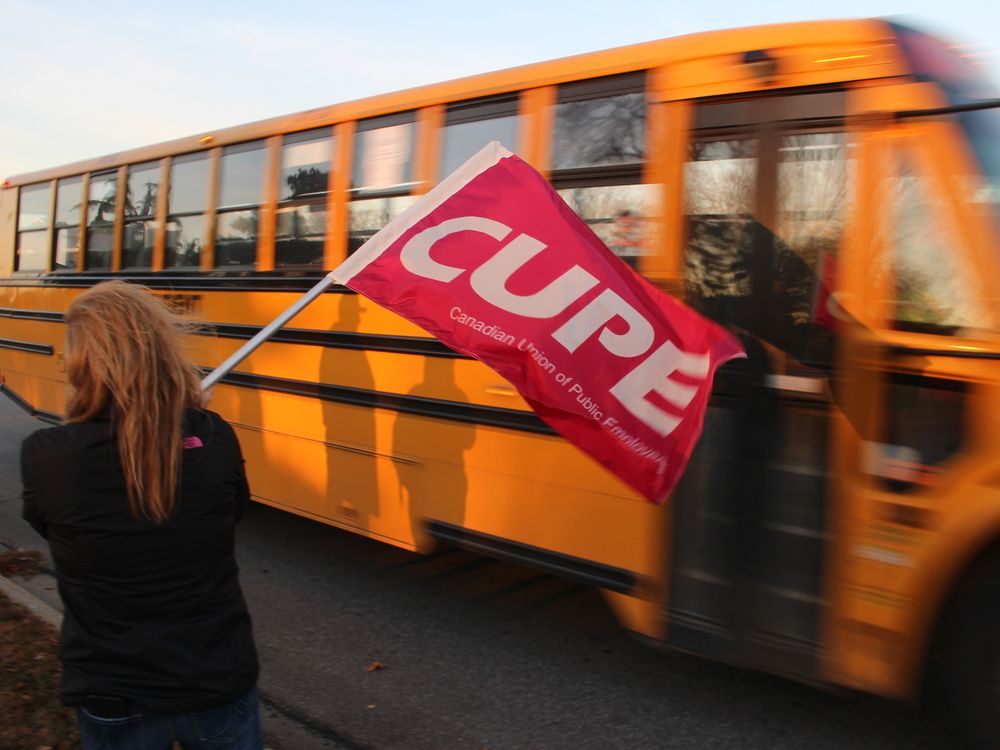Education
Poll Results Raise Questions About Education Funding in Ontario

A recent poll commissioned by CUPE Ontario, the political arm of the Canadian Union of Public Employees, has sparked debate regarding public education funding in Ontario. Conducted by Abacus Data, the survey of 2,000 Ontario residents suggests significant skepticism towards the provincial government’s approach, particularly under the leadership of Premier Doug Ford.
The results indicate that only one in three respondents supports eliminating elected school board trustees or restructuring the boards, while opposition and uncertainty make up the majority. Specifically, 36% of respondents oppose eliminating trustees, and 37% are against restructuring school boards. Furthermore, when asked about the expected outcomes of proposed changes, 39% believe it would make no difference for students, while 33% think it could worsen educational outcomes.
The poll posed a series of questions aimed at gauging public sentiment on education funding and governance. Among the statements, a majority of respondents agreed that “the main problem for Ontario schools is underfunding, not school board trustees,” and that eliminating trustees would not increase resources like educational assistants or reduce class sizes. Critics argue that the wording of the questions may have led respondents toward CUPE-favored conclusions.
The poll also asked whether respondents would prefer the Ford government to “start filling the gap in funding they’ve made worse over the last seven years” or maintain current funding levels while eliminating school trustees. This framing appears to skew responses toward favoring increased government spending.
Another controversial question linked the Ford government’s educational policies to populist sentiments, comparing them to actions taken by former U.S. President Donald Trump. Respondents were asked if they believed the government should follow through on a campaign promise to protect Ontario from such centralization of power, or if they thought the government was simply executing its electoral mandate.
Despite claims of underfunding in Ontario’s education system, findings from the Fraser Institute indicate that inflation-adjusted per-student spending in public schools remained relatively stable between the 2022-23 academic year and 2013-14. A report from the C.D. Howe Institute further suggests that resources in Ontario classrooms either stayed steady or experienced slight increases over the past five years, contradicting the narrative of significant cutbacks.
According to Abacus Data, the poll results highlight a strong public skepticism toward the Ford government’s educational reforms, with many believing that underfunding is a primary issue. However, critics contend that the poll’s design may have influenced these perceptions, suggesting that a survey incorporating factual spending data could yield a different understanding of public opinion on education.
As the discussion around education funding and governance continues, the implications of this poll will likely remain a focal point in Ontario’s political landscape. The debate raises essential questions about how public perception is shaped by the framing of survey questions and the role of unions in influencing educational policy.
-

 Education3 months ago
Education3 months agoBrandon University’s Failed $5 Million Project Sparks Oversight Review
-

 Science4 months ago
Science4 months agoMicrosoft Confirms U.S. Law Overrules Canadian Data Sovereignty
-

 Lifestyle3 months ago
Lifestyle3 months agoWinnipeg Celebrates Culinary Creativity During Le Burger Week 2025
-

 Health4 months ago
Health4 months agoMontreal’s Groupe Marcelle Leads Canadian Cosmetic Industry Growth
-

 Science4 months ago
Science4 months agoTech Innovator Amandipp Singh Transforms Hiring for Disabled
-

 Technology4 months ago
Technology4 months agoDragon Ball: Sparking! Zero Launching on Switch and Switch 2 This November
-

 Education4 months ago
Education4 months agoRed River College Launches New Programs to Address Industry Needs
-

 Technology4 months ago
Technology4 months agoGoogle Pixel 10 Pro Fold Specs Unveiled Ahead of Launch
-

 Business3 months ago
Business3 months agoRocket Lab Reports Strong Q2 2025 Revenue Growth and Future Plans
-

 Technology2 months ago
Technology2 months agoDiscord Faces Serious Security Breach Affecting Millions
-

 Education4 months ago
Education4 months agoAlberta Teachers’ Strike: Potential Impacts on Students and Families
-

 Education3 months ago
Education3 months agoNew SĆIȺNEW̱ SṮEȽIṮḴEȽ Elementary Opens in Langford for 2025/2026 Year
-

 Science4 months ago
Science4 months agoChina’s Wukong Spacesuit Sets New Standard for AI in Space
-

 Business4 months ago
Business4 months agoBNA Brewing to Open New Bowling Alley in Downtown Penticton
-

 Business4 months ago
Business4 months agoNew Estimates Reveal ChatGPT-5 Energy Use Could Soar
-

 Technology4 months ago
Technology4 months agoWorld of Warcraft Players Buzz Over 19-Quest Bee Challenge
-

 Business4 months ago
Business4 months agoDawson City Residents Rally Around Buy Canadian Movement
-

 Technology4 months ago
Technology4 months agoFuture Entertainment Launches DDoD with Gameplay Trailer Showcase
-

 Technology2 months ago
Technology2 months agoHuawei MatePad 12X Redefines Tablet Experience for Professionals
-

 Top Stories3 months ago
Top Stories3 months agoBlue Jays Shift José Berríos to Bullpen Ahead of Playoffs
-

 Technology4 months ago
Technology4 months agoGlobal Launch of Ragnarok M: Classic Set for September 3, 2025
-

 Technology4 months ago
Technology4 months agoInnovative 140W GaN Travel Adapter Combines Power and Convenience
-

 Science4 months ago
Science4 months agoXi Labs Innovates with New AI Operating System Set for 2025 Launch
-

 Technology4 months ago
Technology4 months agoNew IDR01 Smart Ring Offers Advanced Sports Tracking for $169










